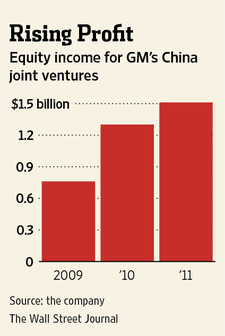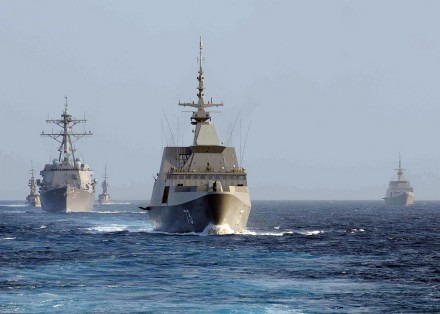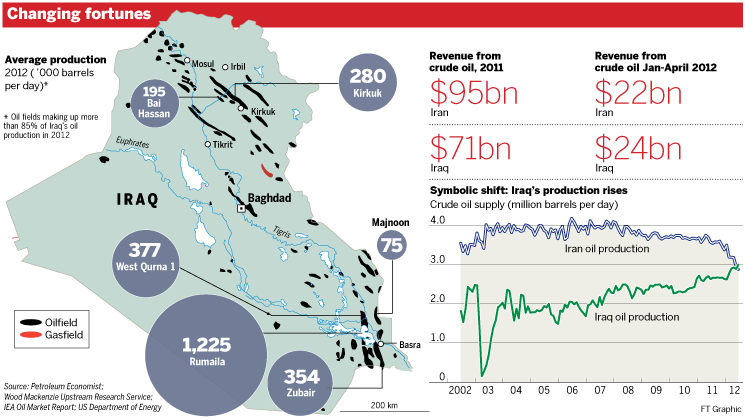 Book is by George Michael of Air War College. I wrote the following blurb for the backcover:
Book is by George Michael of Air War College. I wrote the following blurb for the backcover:
As globalization continues to process a lot of populist anger over injustices - both perceived and real - stemming from its rapid expansion into traditional cultures, the world is going to suffer a lot more of the 'leaderless' terrorism that Michael explores in this wonderfully evenhanded book. Those hunting for solutions - in addition to the 'bad guys' - would do well to add this to their reading list.
--Thomas P.M. Barnett, Chief Analyst, Wikistrat
In the conclusion, after a section on PLA Colonels Qiao Lian's and Wang Xiangsui's book, Unrestricted Warfare, Michael offers a summary of my thinking:
Global Integration
In a sense, Qiao and Wang's advocacy of unrestricted warfare on multiple dimensions is similar to Thomas P.M. Barnett's notion of "war within the context of everything else." A former Pentagon defense analyst, Barnett argues that in the contemporary world security must encompass several different dimensions, including economics, politics, trade, international law, and, most important, connectivity. His major study, The Pentagon's New Map, advanced a grand strategy for the United States. In Barnett's scheme, the world is divided into two broad regions. Countries in the "Functioning Core" are integrated into a world system and operate under "rule sets." They arbitrate their differences through international bodies, such as the United Nations and the World Trade Organization, and are less likely to go to war against other countries in the core.[PNM] In contrast, countries in the "Non-Integrating Gap" do not follow these rule sets and are the setting for most of the problems that bedevil the world today.
The real enemy, according to Barnett, is disconnectedness, the separation of people - especially globally. Life in the Gap is, to paraphrase Thomas Hobbes, poor, nasty, short, and brutal, he says.[PNM] An unabashed economic determinist, he believes that people integrated into the global economy are far less likely to succumb to radicalism. As he puts it, the only viable exit strategy for the US military in countries such as Iraq and Afghanistan is to leave those countries with more jobs than when the operations began.[GP & Zakaria's Post-American World] With no resevoir of discontent, extremist and terrorist groups will find few recruits and pose no existential challenge to the system. Although Muslim rage may be fueled by issues such as the status of the Palestinians and US foreign policy, Barnett argues that it really stems from the Middle East being one of the most disconnected parts of the world. In short, Barnett's long-term strategic goal is the integration of all into the global economy, to drain the resevoir for international terrorism. Multilateral efforts could eliminate the Gap altogether, making globalization truly global.[PNM] Barnett sees globalization as inevitable, because it is the ultimate "non-zero-sum game" - meaning that all sides win. The entire world will benefit from greater connectedness, he believes, through economic growth and higher standards of living.[BFA]
Lending credence to Barnett's thesis, researchers at the Center for International Development and Conflict Management at the University of Maryland have discovered that countries that are more tightly integrated into the global economy experience less instability.[Ted Gurr edited volume Peace and Conflict 2008] Nearly 80 percent of all international crises in the post-Cold War era have involved at least one unstable or failing state.[Peace and Conflict 2008] The physical security of the United States is now threatned not so much by the strenth of other states, but by their weakness, since weak and failed states often serve as sanctuaries for transnational terrorist groups.[PNM & Takeyh/Gvosdev cite] Despite current global problems, Barnett is optimistic about the future and believes that the terrorist threat can be managed effectively:
I don't see the Salafist threat as particularly profound. It has not done well, particularly in the last several years by my calculations . . . I see them more as a friction. I expect to see more of its as globalization more extensively penetrates the Middle East ast a much faster pace. The Salafists are a response to globalization, a reflection . . .
If we pursue the strategy [of expanding "the core" and shrinking "the Gap"], I don't see how it could fail. If we pursue the strategy, then we can participate in it more and we can shape the process and shape the regimes and the global pillars that arise from the process [May 2008 interview by Michael]
According to Barnett, economics got ahead of politics during the 1990s, and technology got ahead of security, causing the world to become too connected too quickly.[PNM] New technology had led to the emergence of "superempowered individuals," who Barnett believes have the potential to wreak unprecedented damage or "system perturbation."[Friedman's Lexus & Olive Tree, GP] Although the United States cannot be defeated at the nation-state level, Barnett points out that it can still be humbled and even defeated at a system level if the US government is induced to disengage from the Middle East, through acts of terrorism in the style of 9/11.[PNM] Another terrorist attack on that scale could further destabilize financial markets and have a negative ripple effect throughout the economy. Nevertheless, he believes that modern societies have advanced precisely because they have mastered network complexity, usually in response to disasters and scandals that have periodically perturbed their systems and exposed vulnerabilities.[GP]
The encroaching process of globalization, Barnett avers, will undoubtedly engender opposition from those who feel threatened with a loss of identity and culture. The goal of such actors is a "civilizational apartheid" - removal of their areas from the process of globalization. In some ways, though, greater connectivity could increase the number of terrorists. For instance, inasmuch as the "virtual umma" is built on the Internet, increasing access to the medium would increase the potential to radicalize a large number of disaffected Muslims.[irregular warfare book cite]
Despite disruptions along the way, Barnett believes that globalization, if managed effectivey, is a force for good that improves the life conditions of many people. In order for his grand strategy to become a reality, the United States must take a leading role, with other "great powers" pitching in.[GP] Some observers, through, presage an end to US hegemony. What is more, some fear that centrifugal forces could actually tear the United States apart.[pages 158-60]
Michael follows that segue with a section on Sam Huntington, Pat Buchanan, William Lind, Martin van Creveld and Robert Kaplan entitled "Fragmentation."
The next section is called "The Viability of Leaderless Resistance," and here's the last bit referencing my stuff:
Societal fragmentation could increase the frequency of small-scale violence and the prevalence of lone wolf terrorism. But some observers believe the threat of leaderless resistance is overstated. Thomas Barnett finds the discussion about fourth-generation and fifth-generation warfare to be overwrought, depicting, as they sometimes do, a future in which Mad Max-like warriors roam a wasteland. Far from seeing al Qaeda as winning, Barnett sees a movement in retreat, as time and time again it has shifted its center of graveity from one locale to another in response to evictions and military reprisals. Likewise, he see little future for terrorism in "the core." As he points out, terrorism in core countries tends to be sporadic and unsupported by the populace. Perpetrators are often disaffected loners, such as Timothy McVeigh and Ted Kaczynski, who "we see shuffling in orange jump suits and chains . . . on their way to a court appearance." Rather than representing a "political storm," they become a social nuisance. This is in contrast to terrorists in the Gap who often thrive in a "wild frontier" environment.[BFA] [pages 165-66]
A pretty fair capture of what I wrote, although I always get this thing where my writings on connectivity leading to peace are countered with the notion (cited from others) that initial connectivity can actually lead to a rise in instability, which is, of course, a point I made ad naseum in my three books. After all, I called it The Pentagon's New Map, indicating that I argued globalization's spread would map out where conflict is going to occur.
Michael did a fair job of laying out my grand strategic vision while making clear that globalization's spread is inevitable all on its own at this point ["unabashed economic determinist . . . Barnett sees globalization as inevitable ..."], whether or not the US leads. Too often my emphasis on what the US should do gets translated as "defeat the US and defeat globalization," which, as I note often in my writings, I don't believe is possible at this point in history, in large part because it's Asia that now leads in globalization's expansion. Where I argue the US role is crucial comes in how that inevitable globalization of globalization unfolds - i.e., how much violence is attached to that process and what are the pol-mil outcomes.
Naturally, opponents to President Obama's "strategic pivot" to East Asia are going to complain that the US is "abandoning" the Middle East, thus securing the radical Islamist "win" on some level (per my description above), but, as I have written time and again, I don't buy that one bit. I see the "pivot" as an ass-covering drill by the Democrat Obama intent on closing down Bush's wars (along with a certain indulgence of US populism that blames a lot of America's current woes on "dastardly" China's rise), as well as a budget-floor-locating drill by the Pentagon eager to cut back on the Green (Army, Marines) and favor the big-war Blue (Air Force, Navy) that was "unfairly" penalized by the Long War and Bush's far-too-delayed embrace of COIN. True to form, globalization keeps pulling America's attention back to the Middle East in the form of the Arab Spring.
In short, our attention is pulled to wherever globalization's continued expansion hits traditional cultures not quite ready for it. East Asia gets a certain amount of our attention due to the deficit of regional integration schemes there, but these are not issues to be settled by great-power war - as much as plenty inside the Pentagon dream of such nasty business there. But growing pains are growing pains, so East Asia gives us enough "crisis" to attract our attention even as other developing parts of the world are where the sub- and transnational action are at.
Having said all that, I did mean what I said in the blurb: I do think globalization's continued expansion gets you more leaderless terrorist activity, not so much because they're superempowered (because we all are), but because that's all that's left as globalization penetrates and absorbs the remaining traditional cultures (on view right now with the Arab Spring and in Africa's widespread economic boom and the socio-economic churn created by that).
Of course, so long as the US offers the mentally ill easy access to military-grade automatic weaponry and ammunition, we'll have things like the Aurora shooting, which is plenty scary. The ease of doing that in our society eventually has to attract the attention of more organized foreign terror groups along the lines of the Mumbai incident. I expect that to happen at some point, forcing the US and the West in general down some of the same domestic security paths that Israel long ago adopted (as did the UK in response to the IRA). This adjustment will be uncomfortable, but not life changing. And it will have no impact whatsoever on globalization's continued advance. It will simply be the price of America's grand strategic success in spreading globalization these past seven decades - along with a sad reflection of our societal love of guns and violence.
 Thursday, September 6, 2012 at 8:30AM
Thursday, September 6, 2012 at 8:30AM 





























